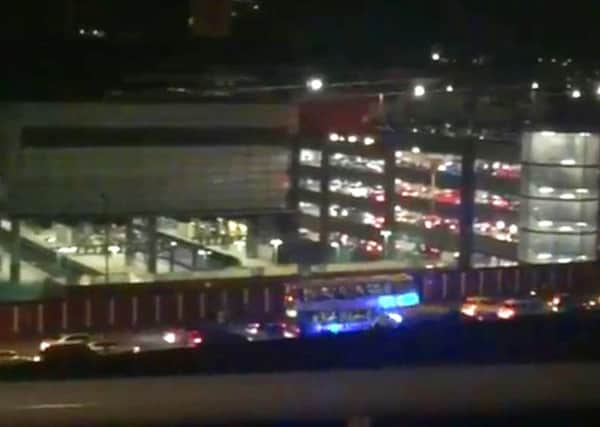Manchester attack '“ mourn, condemn but don't do anything stupid


That was the plea from Phillips O’Brien, professor of strategic studies, School of International Relations. at St Andrews University.
His comments came after 22 people, including children, were killed after a horrific terrorist attack on the Manchester Arena just minutes after a concert by American singer Ariana Grande ended last night.
At least 59 people were also injured.
Advertisement
Hide AdAdvertisement
Hide AdProfessor O’Brien said the ‘‘roots’’ of such attacks – which have hit a number of western cities in recent months – ‘‘are so convoluted that explanation is extremely difficult.’’
He said: ‘‘The tragic attack in Manchester is not the first and it will not be the last. If, as it seems likely, the deadly explosion at the Ariana Grande concert in Manchester last night turns out to be the work of a suicide bomber, we should mourn the dead, help the injured, counsel the grieved and not do anything stupid.
What the last decade and a half have shown is that these events are now part of life, not just in major western cities such as Paris, Berlin, Boston or London, but throughout the world in Mumbai, Lagos or Hotan. What they are not, are incidents whose likelihood (or not) is related to some instant response or lashing out.
‘‘At this point the roots of what is occurring in this ongoing “war”, be it in Syria, Yemen, Nice or Manchester are so convoluted that explanation is extremely difficult.’’
Advertisement
Hide AdAdvertisement
Hide AdBut he said any instant military response or immediate escalation of violence in rsponse ‘‘has achieved little or nothing, and might even be counterproductive.’’
Prof O’Brien continued: Over the last 15 years, the United States, the United Kingdom and their allies have waged an ongoing war, with moments of escalation and extreme force, and yet the “enemy” adapts, changes shape and continues to attack.
‘‘Even if, as is very possible, the attacker in this case has pledged their loyalty to ISIS, there is no evidence that filling the Syrian desert with more military ordnance will make our lives any safer—and it could true that the opposite is the case.
‘‘On the other hand, what we must always keep in mind is that we in the west live lives of extraordinary safety in relative and historical terms.’’
Advertisement
Hide AdAdvertisement
Hide AdProfessor O’Brien also sought to put the attacks into context.
‘‘These incidents are terrible, and they happen with what seems to be a drip-drip regularity,’’ he said.
‘‘However, they lead to a very small number of deaths compared to the most mundane of activities.’’
In the United States it was recently calculated that over the last 20 years, including the attacks on 9/11, Americans were more likely to be killed by lightning, or indeed by their own clothes melting or igniting, than by a terrorist attack launched by a non-US citizen.
‘‘So mourn, yes. Condemn, yes, but let’s not start dropping bombs because it makes us feel we must do something.’’